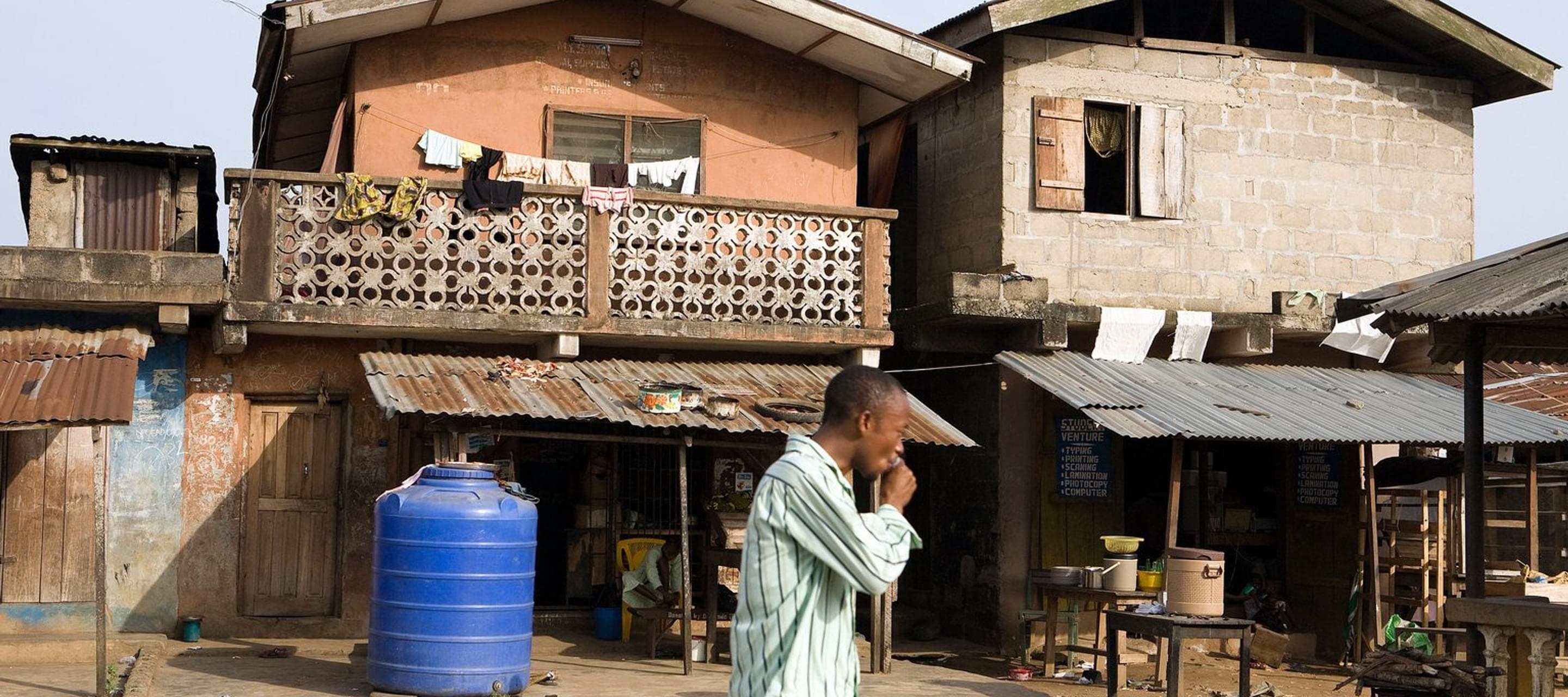Lagos Visioning Workshop

As part of the “Building for Today and the Future” project, on 3 November 2022 representatives of the built environment industry, NGOs, businesses, academia, and government gathered at an IHRB-hosted online workshop to envision pathways for a just transition in Lagos’ built environment.
Key participants included:
- National Human Rights Commission of Nigeria
- Green Building Council Nigeria
- NGOs: Futuresavers Sustainable Development Initiative, IJIKOO, Spaces for Change
- MTN Foundation, MTN Nigeria Telecommunication Plc
- University of Lagos, Research Management Office
The project combines research and visioning in eight cities globally, connected up to regional and international advocacy to ensure that climate action relating to buildings and infrastructure is just and respects human rights. It has a particular emphasis on four areas: the right to housing; the rights of construction workers; meaningful participation; and non-discrimination / spatial justice.
Key insights from the visioning workshop in Lagos included:
- Given that 40% of Nigeria’s households own and use petrol-generating sets every day, there is a shared understanding of the need to shift to more sustainable energy-generating methods and to do so in a just way (with shared responsibility between the government, businesses, and households)
- Due to lack of effective urban planning and public investment in the built environment, people have resourced to the ‘self-help’ approach (building houses themselves incrementally as financial means allow), which at the moment is an uncontrolled, unsustainable and unjust process
- Built environment decision-making power is too concentrated at the state level, there is a need to examine the benefits of decentralised governance with adequate accountability and transparency mechanisms.
Participants workshopped what they would like to see “more of” and “less of” from the public sector and the private sector in order to strengthen the pathways to a just transition in Lagos’ built environment, which included, among many:
- Want to see more: inter-sectoral synergies, inclusive and responsible governance, green urban design including non-motorised urban environments and the promotion of more renewable sources of energy.
- Want to see less: working in silos, imported policies, lack of political will to govern in the interest of the people, energy from carbon sources, and motorised/polluting mobility and its serving infrastructure.
How do we make the vision a reality?
Table for workshopping specific barriers and opportunities
Cities of the future
Visions for a just and climate-resilient built environment
We commissioned young artists in Lagos, Lisbon, Jakarta, Prague, Copenhagen and Melbourne to bring the visions of a fairer, greener future for each city to life through visual art pieces that can serve as a unifying vision for a locally-grounded, fairer transitions.

Taiwo Adebayo, Lagos, Nigeria